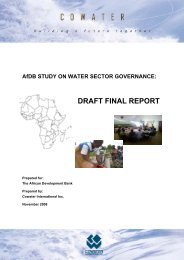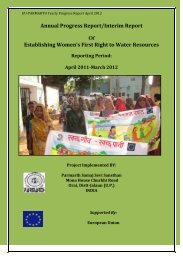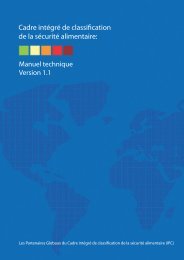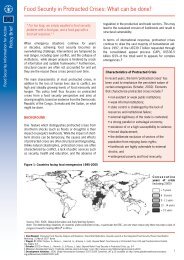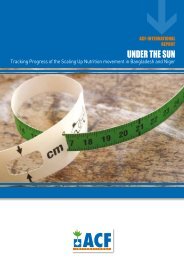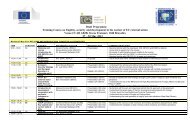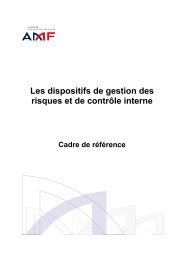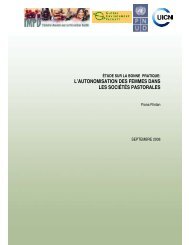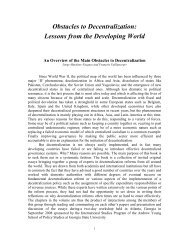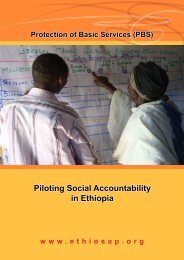Extraction Technologies for Medicinal and Aromatic ... - Capacity4Dev
Extraction Technologies for Medicinal and Aromatic ... - Capacity4Dev
Extraction Technologies for Medicinal and Aromatic ... - Capacity4Dev
You also want an ePaper? Increase the reach of your titles
YUMPU automatically turns print PDFs into web optimized ePapers that Google loves.
EXTRACTION TECHNOLOGIES FOR MEDICINAL AND AROMATIC PLANTS<br />
is the most widely accepted process <strong>for</strong> the production of essential oils on<br />
large scale. Throughout the fl avor <strong>and</strong> fragrance supply business, it is a<br />
st<strong>and</strong>ard practice.<br />
An obvious drawback to steam distillation is the much higher<br />
capital expenditure needed to build such a facility. In some situations, such<br />
as the large-scale production of low-cost oils (e.g. rosemary, Chinese cedarwood,<br />
lemongrass, litsea cubeba, spike lavender, eucalyptus, citronella,<br />
cornmint), the world market prices of the oils are barely high enough to<br />
justify their production by steam distillation without amortizing the capital<br />
expenditure required to build the facility over a period of 10 years or more.<br />
1.3.5.3.2.3.1 Advantages of Direct Steam Distillation<br />
• Amount of steam can be readily controlled.<br />
• No thermal decomposition of oil constituents.<br />
• Most widely accepted process <strong>for</strong> large-scale oil production,<br />
superior to the other two processes.<br />
1.3.5.3.2.3.2 Disadvantage of Direct Steam Distillation<br />
• Much higher capital expenditure needed to establish this<br />
activity than <strong>for</strong> the other two processes.<br />
1.3.5.3.3 Essential Oil <strong>Extraction</strong> by Hydrolytic Maceration<br />
Distillation<br />
Certain plant materials require maceration in warm water be<strong>for</strong>e<br />
they release their essential oils, as their volatile components are glycosidically<br />
bound. For example, leaves of wintergreen (Gaultheria procumbens)<br />
contain the precursor gaultherin <strong>and</strong> the enzyme primeverosidase;<br />
when the leaves are macerated in warm water, the enzyme acts on the<br />
gaultherin <strong>and</strong> liberates free methyl salicylate <strong>and</strong> primeverose. Other similar<br />
examples include brown mustard (sinigrin), bitter almonds (amygdalin)<br />
<strong>and</strong> garlic (alliin).<br />
1.3.5.3.4 Essential Oil <strong>Extraction</strong> by Expression<br />
Expression or cold pressing, as it is also known, is only used<br />
in the production of citrus oils. The term expression refers to any physical<br />
process in which the essential oil gl<strong>and</strong>s in the peel are crushed or broken<br />
to release the oil. One method that was practiced many years ago, particularly<br />
in Sicily (spugna method), commenced with halving the citrus fruit<br />
followed by pulp removal with the aid of sharpened spoon-knife (known as<br />
a rastrello). The oil was removed from the peel either by pressing the peel<br />
against a hard object of baked clay (concolina) which was placed under<br />
a large natural sponge or by bending the peel into the sponge. The oil<br />
47



